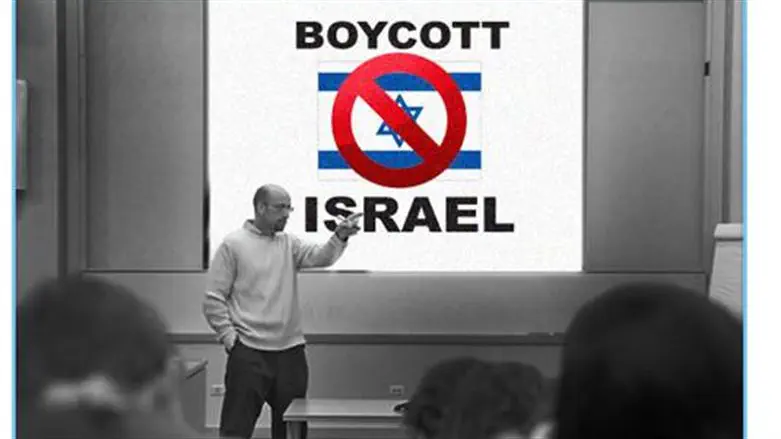
(JNS) More and more these days, people are calling Israel an apartheid state. For some, it’s a socially acceptable way to channel antisemitic impulses. For others, it’s a form of virtue signaling. And of course there are the anti-Zionists at places like Amnesty International and Human Rights Watch.
So what do South Africans say about this?
Well, on one side, there are writers like Ronnie Kasrils, a former South African cabinet minister who supports BDS, has accused the Israeli leadership of “behaving like Nazis,” has compared Israeli airport restrictions to Gestapo tactics, has pursued ties with Hamas and claims that conditions in Israel are worse than South African apartheid.
Then there’s John Dugard, a South African lawyer and writer who has served as the Special Rapporteur to the United Nations Commission on Human Rights (UNCHR). He’s more sophisticated than Kasrils, but his message is the same: Israelis are oppressors with no rights, Palestinian Arabs are victims with no obligations and terrorism doesn’t exist. Indeed, Dugard has defended the Palestinian Arab use of suicide bombers and rockets as “acts committed in the course of a war of national liberation against colonialism, apartheid or military occupation.” In an interview, he has said, “I have no hesitation in saying that Israel’s crimes are infinitely worse than those committed by the apartheid regime of South Africa.”
Propagandists like Kasrils and Dugard have a lot of influence. But they also face strong opposition from a different group of South African writers—human rights activists who have detailed knowledge of Israel, know apartheid firsthand and actively resist efforts to slander the Jewish state.
Foremost among them is the author Benjamin Pogrund. Born in 1933, he spent more than 25 years as a journalist at the Rand Daily Mail in Johannesburg, reporting on the evils of apartheid. In return, the South African government jailed him, revoked his passport for five years, and declared him an enemy of the state. After the Rand Daily Mail closed in 1985 under pressure from the government, Pogrund’s liberal reputation prevented him from getting a job. So he moved to London and spent ten years as a writer and editor, before making aliyah in 1997. Later, his book, “Drawing Fire: Investigating the Accusations of Apartheid in Israel,” appeared. He doesn’t hesitate to criticize Israel, but he denies that it’s an apartheid state.
In a point-by-point comparison, Pogrund shows that with regard to voting, democracy, basic freedoms, marriage, health care, social welfare, the right to work, schools, citizenship, public facilities, the legal system and other factors, there is no meaningful similarity between Israel inside the Green Line and apartheid South Africa.
Nor does Pogrund see apartheid on the 'West Bank'.
The essence of apartheid, he notes, is intentional discrimination on the basis of a racist ideology. “That is not the 'West Bank'. There is no ideological aim to discriminate against Palestinian Arabs.” The dispute is about land. It is not about race. “How can it be? The Palestinian Arabs are relatives of the Arabs who live in Israel and who are Israeli citizens with the rights of citizens. They are from the same stock.” Moreover, 'West Bank' Palestinian Arabs who work legally in Israel “enjoy the same labor laws as Israelis.” And Palestinian Arabs who work in industrial zones in 'West Bank' Jewish communities receive “the salaries and benefits provided in Israeli law.” Thus, Pogrund says, conditions on the 'West Bank' are “nothing like the meticulously organized and institutionalized racism of apartheid South Africa.”
Similarly, Rabbi Dr. Warren Goldstein, chief rabbi of South Africa, has written that the apartheid accusation “presents a grotesquely distorted picture of both South African history and the current reality in Israel.” The goal behind this slander, he maintains, is “to delegitimize Israel, to portray it falsely as a state founded on the cardinal sin of racism, thereby denying it the moral right to exist.” Moreover, he says, “[T]here can be no greater desecration of the memory of the victims of apartheid than ripping the word out of South African soil, detaching it from its original meaning, and weaponizing it in the cause of another form of bigotry.”
Exploring this theme of misappropriation, the black South African attorney and activist Olga Meshoe Washington has written, “Calling Israel an apartheid state trivializes the humiliation and injustices endured by black South Africans who lived through apartheid and who still, together with their children and grandchildren, bear the scars of its legacy. If black South Africans enjoyed the rights enjoyed by Israeli Arabs, there would have been no need for South Africa’s liberation movement.” Continuing, she concludes, “It is thus morally repugnant for any person, any organization, or any government to incorrectly appropriate South Africa’s apartheid history to Israel.”
Unfortunately, the apartheid slander continues to gain momentum. So let’s hope these South African supporters of Israel get the attention they deserve.
Paul Schneider is an attorney, writer and member of the Board of Directors of the American Jewish International Relations Institute (AJIRI), an affiliate of B’nai B’rith International.